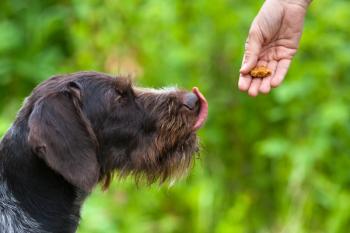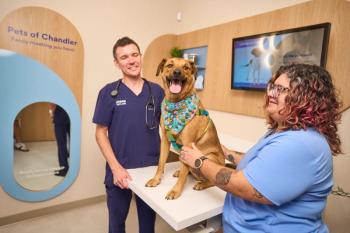
New Care Standards Introduced for Breeders, Distributors of Small Companion Mammals
The Pet Industry Joint Advisory Council has created the first set of voluntary standards for breeders and distributors of small mammals, birds, and reptiles—the PIJAC Small Animal Standards of Care.
Leaders in the pet industry and from all aspects of veterinary care have been working together for over a year to evaluate existing animal welfare policies and best practices. Last week, the Pet Industry Joint Advisory Council (PIJAC) launched an initiative to ensure the same industry care standards for small mammals, birds, and reptiles.
Credit: pijac.org
"This truly was a collective effort to create and launch the first national set of robust guidelines for the care of small companion animals being raised by breeders and distributors of animals,” said Mike Bober, president and CEO of PIJAC.
The PIJAC Small Animal Standards of Care is the first set of voluntary standards for breeders and distributors of small mammals, birds, and reptiles.
The process to create these standards began in March 2016 at the Global Pet Expo in Orlando, Florida. Breeders and distributors of small mammals, birds, and reptiles are not regulated under the federal Animal Welfare Act, so the pet community decided to change this together.
“These standards incorporate current best practices, science, and data into a single set of high-level standards to help ensure the welfare of these animals; to provide critical animal care guidance for breeders, distributors, and employees; and to demonstrate our shared commitment to assuring responsibility and appropriate animal care at all times,” Bober said.
The new standards were created by combining Animal Welfare Act regulations with industry best practices to provide guidelines for housing, water and air quality, lighting and temperature control, feed and nutrition, cleanliness and sanitation, biosecurity and physical security, veterinary care, quarantine of sick animals, euthanasia, escape protocols, enrichment, record keeping, and much more. Standards also address the humane transport of small of these animal groups, including handling,shipping, and receiving; carriers; space per animal; safety; and temperature control.
In addition to these standards, PIJAC introduced a “Duty to Report” policy for breeders and distributors that is designed to be signed by employees as a pledge of their commitment to upholding the SAC standards. PIJAC also announced a toll-free hotline for employees to report anonymously any animal abuse, mistreatment, or other detrimental care issues that they observe.
“A critical measure included in the standards is the establishment of new guidelines for biosecurity and facility security,” Bober said. “The standards for these areas are general enough to account for the individual circumstances in which each breeder and distributor may find themselves, but specific enough to provide effective guidance above and beyond the requirements of the Animal Welfare Act for disease prevention, health and well-being, and site management.”
A summary of the standards can be found
Newsletter
From exam room tips to practice management insights, get trusted veterinary news delivered straight to your inbox—subscribe to dvm360.






